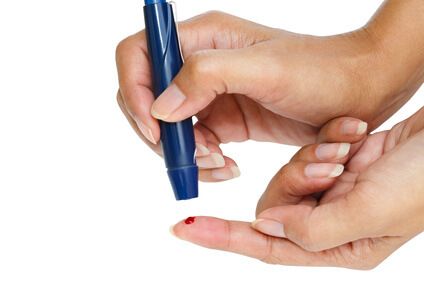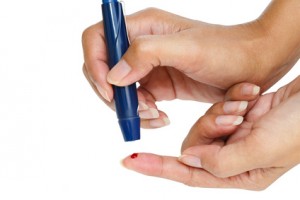
There is definitely no synthetic replacement for sugar that is not dangerous. This, of course, is not what the big companies want you to think. However, for many years now, the evidence has been mounting up against artificial sweeteners.
Sucralose, sold under the name Splenda, has been implicated in a number of serious health reactions including gastrointestinal problems, allergic reactions, blurred vision, seizures weight gain and increase in blood sugar. Very few trials were ever done on this synthetic sugar and those that were done looked at tooth decay, not human tolerance.
Splenda, recommended to diabetics since its FDA approval in 2006, is highly popular. In fact, Splenda sponsors both the American as well as British Diabetes Associations. The “yellow packet,” as it is endearingly referred to, was promised to be a safe and effective replacement for sugar for those with insulin resistance issues.
However, according to a study published in the journal Diabetes Care, this extremely popular, yet dangerous, sweetener confuses the body and changes the way it handles sugar. This is devastating news to all those who have put their trust in not only the FDA but also in the manufacturers of Splenda.
Study Specifics
Study participants were divided into two groups. One group drank water and then took a glucose tolerance test while the other group drank sucralose and then took a glucose tolerance test. If manufacturers were correct, there should have been no difference in insulin and blood sugar levels in both groups, all things constant.
However, that was not the case. Those that drank the sucralose had a significant spike in sugar over those that drank the water; a clear indication that sucralose does impact insulin response and blood sugar.
Researchers say that an elevated insulin response can be a good thing if it means that a person can make enough insulin to deal with spikes in glucose. However, it can also be an extremely bad thing because people who secrete more insulin often become resistant to its effects, which can lead to type 2 diabetes.
Health Implications
Anyone who is a diabetic, pre-diabetic or watching their waistline should pay particular attention to the results of this study. Because insulin is a storage hormone, it encourages the body to hang on to fat and prohibits weight loss. High levels of insulin can also promote cancer and have been associated with a higher risk of breast, pancreas, colon and endometrial cancers.
The excessive secretion of insulin is accompanied by secretions of IGF-1 (insulin-like growth factor) – this can fuel the spread and growth of cancer cells. High levels of IGF-1 are associated with a higher risk of such cancers as prostate, breast and colorectal.
Sucralose also reduces healthy gut bacteria which are necessary for immunity, nutrient absorption, detoxification and the prevention of inflammatory bowel disease and allergies.
Another Strike Against Artificial Sweeteners
This current study joins a mounting library of evidence demonstrating the harmful impacts of artificial sweeteners on human health. Artificial sweeteners are supposed to replace refined sugar and have less of an impact on blood sugar. However, the opposite usually occurs and the body becomes confused, hangs on to weight and suffers immensely.
Aspartame, sold under the name NutraSweet can cause headaches and depression. While industry-conducted studies on aspartame show it to be safe, 92% of peer review studies note that it can have dangerous impacts on health.
What is the Answer?

Again, we are faced with the same problem that we face with many other so-called healthy alternatives. As a general rule of thumb, nothing artificial is good for the body, hands down. There is no amount of mixing, pouring, boiling or creating that can take something unnatural and turn it into something that the body recognizes, can use, or benefit from.
The body is much smarter than this, and we continue to underestimate its intelligence. The answer is to stay away from anything that is not 100% real. If you must sweeten your drinks or food, use something that is real such as coconut crystals or stevia.
Remember, stay educated, stay on top of the game and don’t let anyone else assume responsibility for your health. You have to arm yourself with the knowledge that you need to make informed decisions.
-The Alternative Daily
Sources:
http://www.dorway.com/peerrev.html
http://articles.mercola.com/sites/articles/archive/2000/12/03/sucralose-dangers.aspx
http://www.ncbi.nlm.nih.gov/pubmed/23633524

